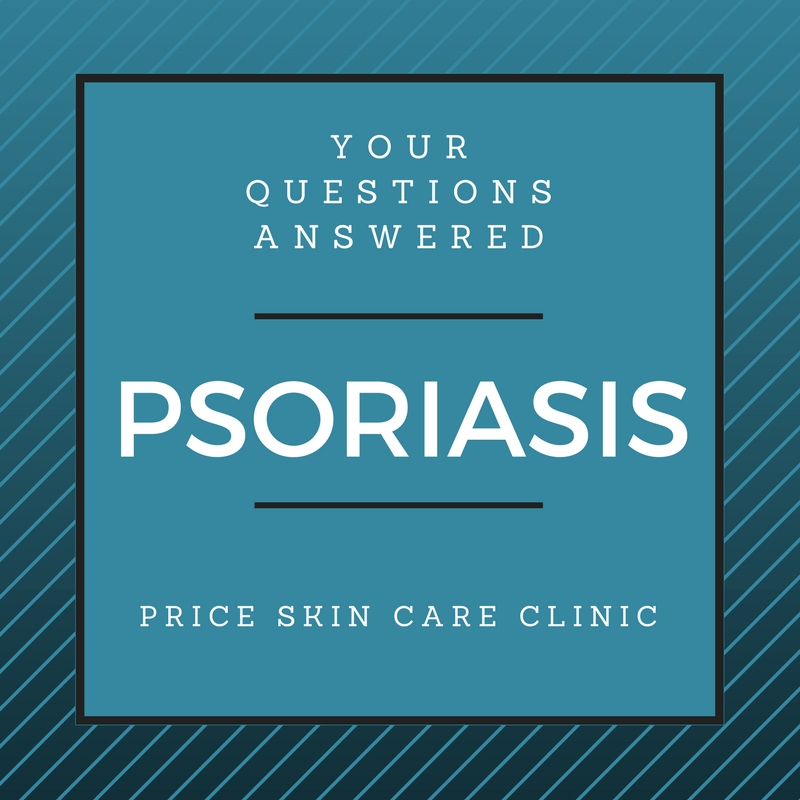As we learned in Part 1 of this ‘Nourish Your Skin’ series, foods can work…
Psoriasis: Your Questions Answered
A new treatment option offered by Price Skincare Clinic is bringing relief and remission from the painful skin condition known as ‘psoriasis.’
The XTRAC laser, approved for treatment of psoriasis by the U.S. Food and Drug Administration in 2009 offers a number of benefits to patients who suffer from this skin condition.
“Psoriasis is a chronic and painful skin condition” said Richard Price, M.D. of Price Skincare Clinic of Madison-Ridgeland, MS. “It affects two to three percent of the general population and left untreated, the pain and discomfort only gets worse.”
Dr. Price and his team consult with psoriasis patients to help them understand the skin condition, teach patients how to live with the condition and discuss appropriate treatment options.
“Psoriasis is not something you cure, it’s something you learn to live with,” said Dr. Price. “Our role at Price Skin Care Clinic is work with these patients to help them understand cause and symptoms, what to expect and prescribe the appropriate clinical treatment for each patient.”
Here are some common questions about psoriasis that Dr. Price and his team are asked.
What is psoriasis?
Psoriasis occurs when skin cells reproduce quicker than normal. Chronic and often painful, psoriasis is recognizable as round, reddish, scaly patches of skin primarily on the feet, knees, elbows, hands and scalp.
What causes psoriasis?
Research suggests that at least 10 percent of the population inherit one or more of the genes that can eventually lead to psoriasis. However, only two to three percent actually develop the disease. Scientist believe that for the disease to activate a person must have a combination of the genes that cause psoriasis and experience certain external factors known as ‘triggers.’
Who is most at risk for psoriasis?
Through research, scientists have identified about 25 genetic variants that make someone more likely to develop psoriatic disease. The genetic varients ‘team’ with triggers to cause psoriasis. Those triggers include: stress, injury or trauma to the skin, specific medications and infection.
What are the traditional treatments for psoriasis?
Traditional treatments for psoriasis include phototherapy, biologic drugs, oral treatments, systemic medications and topical treatments.
How The XTRAC Laser Can Help
One of the most promising treatment options Price Skincare offers psoriasis patients is XTRAC laser therapy, which can reduce the severity of the condition.
“XTRAC therapy makes it possible to experience long remission periods between psoriasis outbreaks,” said Dr. Price. “It does this by penetrating the skin and breaking up the cells that form plaques.”
The XTRAC laser is a small handheld device that can be used in a physician’s office. The laser focuses a single band of ultraviolet B (UVB) light on psoriasis lesions, penetrating the skin and breaking the DNA of the T cells, which have multiplied to create psoriasis plaques.
“Each treatment takes just a few minutes, doesn’t affect the surrounding skin and may require fewer sessions than other treatments,” says Dr. Price. “It’s also effective on hard-to-treat areas of the body including the knees, elbow and scalp. It really is a breakthrough treatment for those suffering from psoriasis.”
For more information or to schedule a consultation with Dr. Price about your psoriasis and how the XTRAC laser may can help, call: (601) 992-3996.
Other posts you might be interested in:
Price Skin Care Offers New XTRAC Laser Treatment for Psoriasis and Vitiligo
Vitiligo: Your Questions Answered




